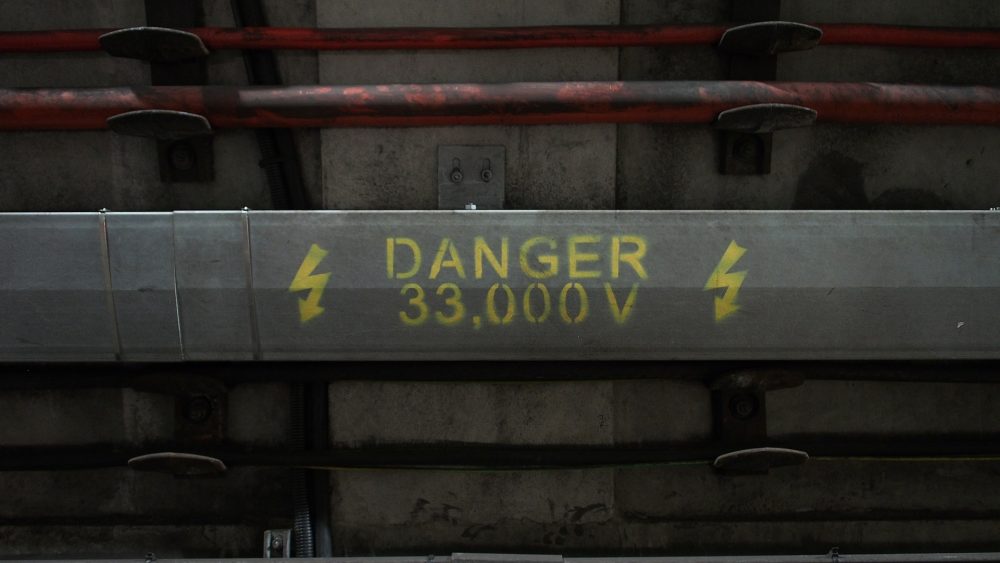Injuries from electricity are no laughing matter, even short durations of contact with small currents can cause quite a nasty shock, let’s go over some electrical safety!
The human body contains an average of 60% water, this makes us a great conductor for electricity. Electrical shocks (injuries) occur when the human body becomes a part of an electrical circuit, due to our bodies being the easiest path for electricity to flow.
The primary four types of injuries resulting from electricity are burns, falls due to shocks, electric shock, and fatal electrocution.
Safety Tips
A large majority of modern workplaces have electrical hazards present, here are some tips to help minimize the chances of an incident causing damage to equipment or employees.
- When working with or near electricity or power lines, use equipment (ie: ladders) with minimal or no conductivity such as fibreglass.
- Do not use equipment, outlets, or cords that have exposed wiring.
- Know the locations of panels, fuse boxes, and circuit breakers in case of emergencies, do not block access to them.
- Label circuit breakers and fuse boxes correctly.
- Ensure all electrical equipment and extension cords used are rated for the proper level of wattage or amperage being used.
- Tape extension cords to walls or out of the way on the floor as necessary to prevent tripping or damage to the cords.
- Install ground-fault circuit interrupters (GFCI) outlets at any location that may get wet (outdoors, kitchens, etc.). GFCI’s will automatically shut off an abnormal electrical circuit preventing death or serious injury.
- Check for damage on any equipment (extension cords, power bars, power equipment) before use. Do not use damaged equipment under any circumstances.
- Do not touch a person or piece of equipment in the event of an electrical accident. Disconnect power source before doing anything.
- Ensure tools are turned off before connecting them to a power supply, also make sure to completely disconnect a tool from power before performing maintenance work.
Response/Treatment
If you or another work has been injured by an electric shock, they will require medical attention regardless if they seem to be fine afterward. In case of shock, do the following:
-
Call your local emergency service (911, 112, 999, etc.)
Your emergency dispatcher will give you advice specific to your situation, follow it while you await the arrival of first responders.
-
Separate the person from power current’s source
Unplug the damaged appliance, shut off power via breaker/fuse box/switch. If you’re unable to turn off the power, stand on a dry, non-conductive surface such as a wooden board or newspaper. If high voltage lines are involved, your local power company must shut them off, do not attempt to separate the person from the current.
-
Do CPR, if necessary. Check for other injuries.
Treat any injuries if possible, apply pressure and elevate any wounds, treat burns as best you can as you wait for medical assistance or the power company to arrive.
The voltage available in the average business or home is strong enough to cause severe injury or death, it is important to respect the power of electricity and to always follow safety procedures. Please stay safe out there!


Comments are closed.